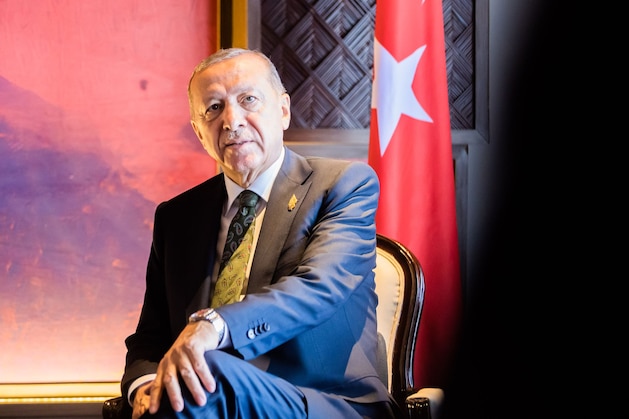In the run-up to the presidential and parliamentary elections, Erdoğan’s poll numbers are slipping. Now he’s trying to win back voters’ favor with a number of relief packages.
With less than four months to go before presidential and parliamentary elections on May 14, Turkish President Recep Tayyip Erdoğan is trailing in almost every poll.
What is the main reason for the dwindling popularity of the President and his ruling Justice and Development Party AKP? Turkey has experienced many democratic backsliding in recent years, particularly in the areas of the rule of law and minority rights.
But as Bill Clinton’s strategist James Carville noted more than three decades ago, the economy is key to voters’ favor.
Carville successfully used his strategy during the US recession to oust then-President George HW Bush and help Bill Clinton win.
Due to the central bank’s large rate cuts towards the end of 2021, the lira plummeted and inflation spiraled out of control. Even if the central bank finally managed to stabilize the exchange rate, inflation could not be stopped.
Despite the extraordinary efforts of the statistical office to put this as low as possible, inflation reached three-digit values by the end of 2022, according to independent experts.
As a result, the living standards of many Turks fell, which ultimately had a noticeable impact on Erdoğan’s popularity ratings in the second half of 2022.
The President reacted to this with an unprecedented economic and patronage policy and a series of political measures to mitigate the social consequences, which were widely criticized.
For example, the minimum wage was raised by 54 percent and an ordinance was issued to eliminate the age limit for entering retirement age.
This means that two million people will be able to retire this year. The estimated cost is 150 billion lira ($7.4 billion).
170 billion lira (8.32 billion euros) are planned for 250,000 new social housing units, and cheap long-term loans are also to be granted for newly built apartments.
Family support programs worth 40 billion lira ($1.97 billion) are also to be introduced, and highway and bridge tolls will be suspended.
In addition, the government plans to absorb private debts of citizens under 2,000 lira, which will incur 30 billion lira ($1.5 billion) in additional costs.
Loans of 150 billion lira are planned for micro-enterprises, as well as a huge loan package of 250 billion lira (12.24 billion euros) covering almost all sectors and targeting small and medium-sized enterprises company oriented.
In addition, tax cuts in many areas (wages, films, concerts and sporting events) amounting to 278.7 billion lira (13.64 billion euros) are planned.
100 billion lira ($4.90 billion) will go into a pension premium for 5.3 million civil servants, and a 30 percent increase in monthly pension payments is also on the agenda.
Even if the list of measures is not yet complete, the large number of planned projects illustrates the overall impression of the situation.
The officially announced inflation rate has fallen from 84.4 percent in November to 64.3 percent in December 2022, albeit mainly due to base effects, which is why it will continue to fall sharply in January.
The central bank has also managed to keep the Turkish lira stable. This temporary sense of macroeconomic stability and the above measures have given the Turks some much-needed economic breathing space.
This also had an impact on the polls: Although Erdoğan is still behind the opposition according to most polling institutes, he has gained several points in the last two months, not least thanks to the extensive relief packages.
In order to finally overtake the opposition, on January 23 he announced the largest restructuring package in Turkey’s history: late fees for unpaid tax bills, social security debts and other obligations to state institutions are to be waived and outstanding debts are to be repaid within a period of 48 months.
Motorists will also get their money’s worth: some traffic penalties and fines are to be canceled and about 10,000 confiscated driving licenses are to be returned.
Anyone who knows which devices at home consume how much electricity can make targeted savings. Our e-paper shows which devices consume how much electricity for all common household appliances, from ovens and stoves to refrigerators and washing machines to TVs and WLAN routers. There are also a number of instant power-saving tips.
It remains to be seen whether the comprehensive measures will finally give Erdoğan a head start in the polls, or whether further voter gifts will follow before the elections.
The burden of all these measures will be placed on the next president, whether his name is Erdoğan or not. But according to a Turkish proverb, the caravan forms on the way (kervan yolda düzülür).
So you improvise and wait and see where the journey is going – assuming, of course, that there is still a caravan after the elections.








